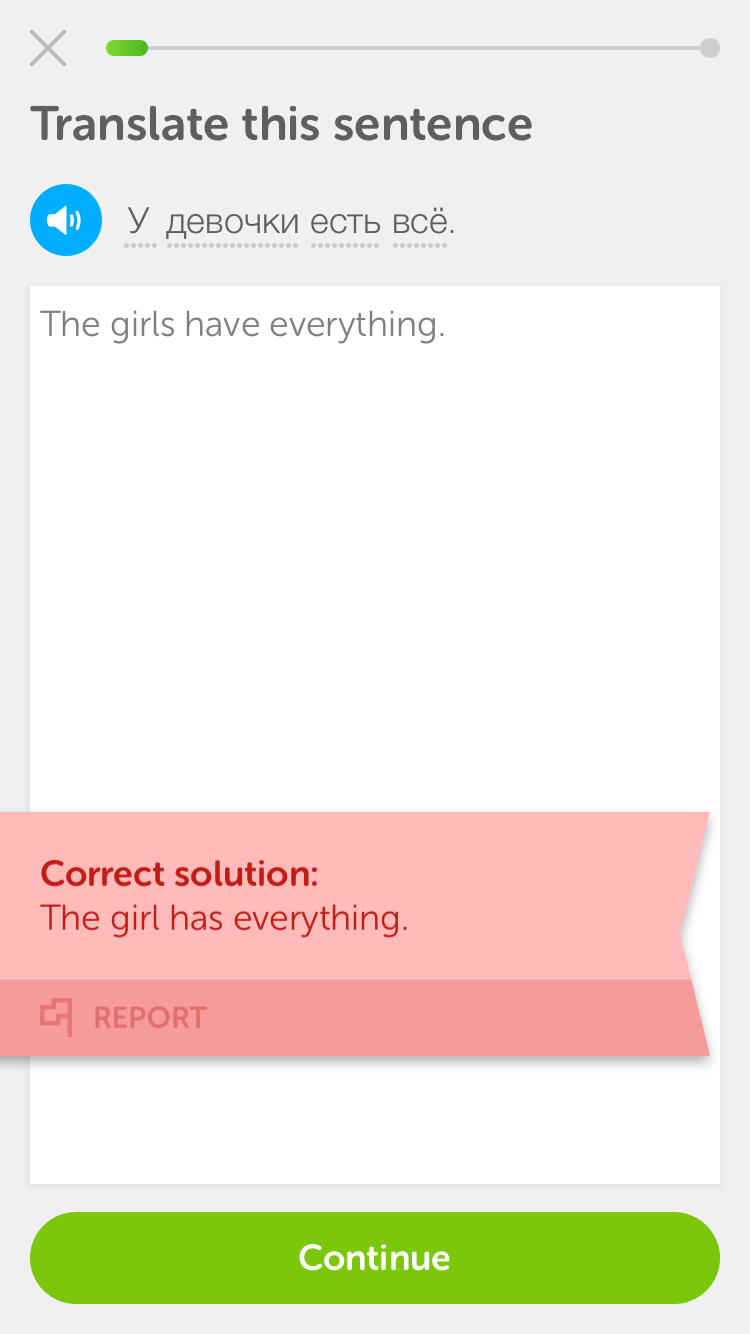I'm a little bit confused here.Duolingo says "У девочки есть всё" is "The girl has everything".
However... If "девочка" is "girl" and "девочки" is "girls" can't we translate the sentence as "The girls have everything"? Or is this some kind of an exception?
Edit : I guess, it does the same thing for other sentences too.It said "The woman has cats" for "У женщины есть кошки" .I'm really lost here.Wasn't женщины = women and женщина = woman.Also кошки is plural too, but the sentence is still singular!?